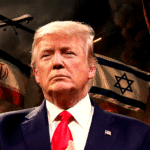by: The Washington Eye
Currency is one of the most significant inventions in human history, yet many of us overlook its importance in our daily lives. At first glance, money seems simple—coins in your pocket, bills in your wallet, or digital numbers in a bank app. But beneath its surface lies a complex system of trust, governance, and economic coordination. Currency works because people believe it works. It is not just a tool for buying and selling; it is a shared agreement among individuals and institutions that a certain object—whether paper, metal, or digital code—holds value and can be exchanged for goods and services.
Before currency came into existence, human societies relied on the barter system. In barter, people exchanged goods and services directly. This method, while natural in small communities, had major limitations. It required a double coincidence of wants: both parties had to want what the other had. If you had wheat and wanted shoes, but the shoemaker didn’t want wheat, you couldn’t trade. Currency solved this problem by serving as a universally accepted medium of exchange. Early currencies included commodities like salt, cattle, or gold—items considered valuable and difficult to fake. Eventually, these evolved into coinage and paper money, often backed by physical commodities such as gold and silver. In modern times, we use fiat money, which has no intrinsic value but is declared legal tender by governments and accepted because people trust the system behind it.
Today, central banks and financial institutions manage currency through complex tools like interest rates, inflation targeting, and money supply regulation. When handled well, these tools can stabilize the economy, foster investment, and generate employment. But mismanagement—such as excessive money printing—can lead to disastrous consequences, including hyperinflation. Historical examples like Zimbabwe or Venezuela demonstrate how quickly a currency can become worthless when public trust is lost. Without faith in currency, prices skyrocket, savings vanish, and economies collapse.
Now imagine a world without currency. Would we return to barter? Perhaps, but that would bring back the same inefficiencies that currency was invented to solve. More likely, alternative systems would emerge. These could include commodity money like gold or oil, decentralized digital currencies such as Bitcoin, or even systems of social credit or labor exchange. Each of these, however, has its flaws. Cryptocurrency, for example, promises decentralization but remains volatile and vulnerable to speculation. Commodity money might favor nations rich in resources and deepen inequality. Social credit systems, while potentially fair, could also become tools of control and surveillance.
A world without currency would likely cause global trade to collapse. Currency provides a common unit of account that allows us to price goods, calculate profits, and manage contracts. Without it, international transactions would become chaotic. Supply chains would stall, and financial markets would lose their foundations. Moreover, debt and long-term contracts rely on stable money. Without currency, these agreements lose meaning. Lending would slow down, investments would halt, and the global economy would become stagnant.
Some idealists imagine a future where money is no longer needed—where technology, automation, and abundance make everything freely accessible. In such a society, resources could be distributed based on need rather than ability to pay. This vision, promoted by movements like The Venus Project, presents a post-currency economy guided by logic and sustainability. But achieving this would require more than technological advancement. It would demand a radical transformation in human behavior, moving from competition to cooperation, and from ownership to shared access. Such a shift, while theoretically possible, is not likely in the near future.
Ultimately, the question is not whether we can eliminate currency, but how we can use it more equitably. As the world becomes increasingly digital, currencies will continue to evolve—through blockchain, central bank digital currencies, and global financial reforms. But the fundamental role of currency as a tool for coordination and trust will remain. Rather than dreaming of a currency-free utopia, our focus should be on building systems that make currency work for everyone, not just the privileged few. Currency is not just about money; it is about meaning, fairness, and the structure of our economic lives. Without it, society as we know it would unravel.














